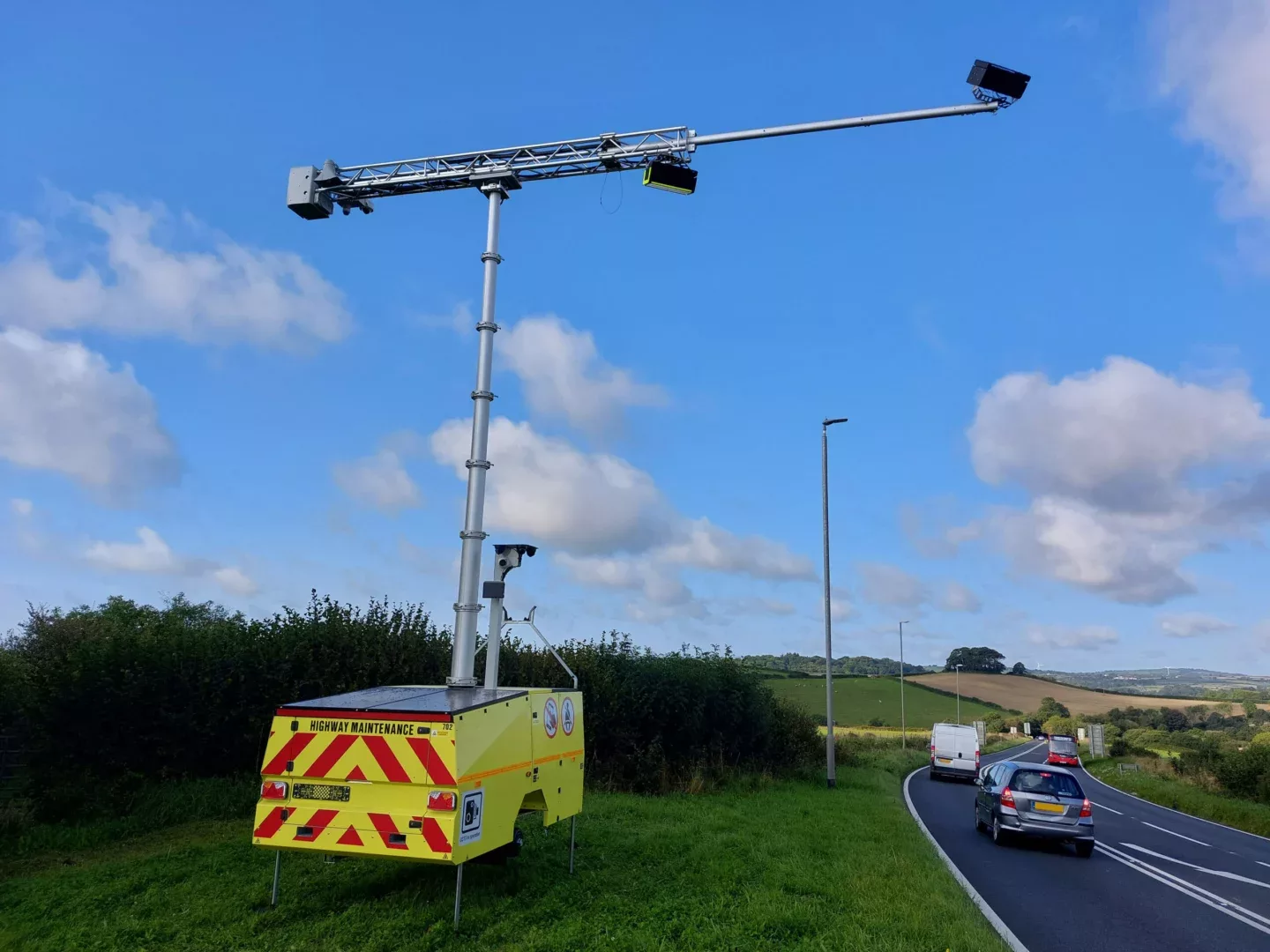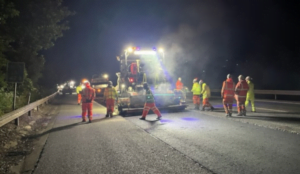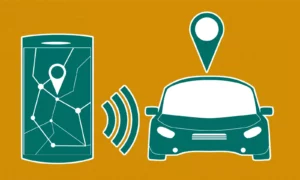A trial of new mobile technology which can automatically detect motorists who are not wearing a seatbelt or using mobile phones while driving is being extended, with police across the country taking part.
Ten police forces will be using the kit from Australian company Acusensus, which is mounted to a vehicle or trailer and has multiple cameras giving differing views of the driver and their passengers.
The National Highways trial first launched in 2021 when motorists spotted driving without seatbelts or on the phone by police using the technology were sent warning letters informing them of the dangers of their behaviour.
Research has found that you are four times more likely to be in a crash if you use your phone while driving and twice as likely to die in a crash if you don’t wear a seatbelt.
In partnership with AECOM, the research is now being extended to work with more police forces to help learn more about how the technology could work on National Highways roads and inform a possible future roll-out nationwide. The latest trial began on 19 February and will run until March 2025.
There are plans for the technology to be fixed to gantries for the first time giving an unobscured view of all lanes.
The Acusensus technology captures footage of passing motorists. The images are processed using artificial intelligence to analyse whether the motorists could be using a handheld mobile phone or drivers may be without a seat belt.
The images are then passed to police for consideration on any action to be taken. Drivers can be fined up to £500 for not wearing a seatbelt in addition to penalty points. While using a mobile phone while driving can result in a fine of up to £1,000 and six penalty points.
The police forces taking part in the trial are: Durham, Greater Manchester Police, Humberside, Staffordshire, West Mercia, Northamptonshire, Wiltshire, Norfolk; Thames Valley Police and Sussex.
England’s motorways are already among the safest roads globally and National Highways has a strategy to further improve safety over the coming years.
National Highways Head of National Road User Safety Delivery, Matt Staton, said: “We know that distracted driving and not wearing seatbelts were key factors in a high number of incidents that resulted in people being killed or seriously injured.
“Working with our police partners we want to reduce such dangerous driving and reduce the risks posed to both the drivers and other people. We believe that using technology like this will make people seriously consider their driving behaviour.
“We will continue to invest in technology that could help make sure everyone using our roads gets home safe and well.”
“We have found this technology really does change driver behaviour,” explained Acusensus’s UK General Manager Geoff Collins. “In New South Wales, where we first used the technology, the number of mobile phone detections have dropped by a factor of six, from 1 in 82 drivers spotted holding a phone in 2019 to 1 in 478 drivers in 2021 and 1 in every 534 in 2023.
“We expect to deliver similarly dramatic results here in the UK.”
Dr Jamie Uff, is the Technical Director at AECOM and is the lead research professional who has been managing the deployment of the technology. He said: “AECOM is really pleased to be continuing our work with National Highways, the Police and camera suppliers. Our work to date has highlighted the scale of the issue, has shown that technology can play a valuable role, and that there is much still to be understood about driver behaviour given the new insights gained.
“Expanding the deployments and integrating data processing with police systems is an important step towards this technology making a significant contribution to road safety.”
Although the research is funded by National Highways, enforcement of motoring offences will remain a matter for individual police forces.
(Picture – National Highways)





















